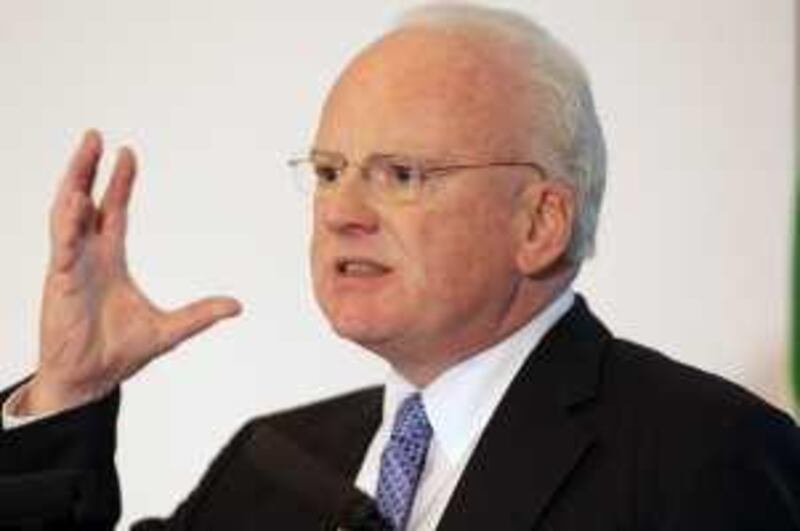ABU DHABI // The UAE's counter-terrorism policies may have shielded it from major attacks, but the country needs to stay vigilant and develop more comprehensive national security plans, senior terrorism experts said yesterday.
"If you look at a map of the region and you ask yourself what country has had a terrorist incident, I think every country in the region has, with the exception of the UAE and Oman," said Richard Clarke, a former chief counter-terrorism adviser to the Clinton and Bush administrations. "So they've done something right." Mr Clarke is also the chairman of Good Harbor, a private security consultancy that advises government departments and private companies in the UAE.
The absence of major terrorist threats in the UAE flows from a combination of effective countermeasures and the lack of an ideological base for extremist groups, said Michael Denison, research director at Control Risks, a security consultancy. The UAE is not hugely vulnerable, he said. "Firstly, there isn't really the local base for al Qa'eda. It's quite low, the number of people that sympathise with it. There isn't really a local network of any substance. The second reason is that the security services in the UAE are pretty good, probably the best in the region, in the Arabian Peninsula. Their operations are fairly solid."
Still, Mr Clarke pointed to what he called "a set of iconic targets", and Mr Denison noted that "terrorists like symbolic attacks - the architecture of Dubai and the Emirates generally, the fact that there are major civil infrastructure projects, big roads and bridges, that sort of thing". The other factor is that the UAE is friendly with the West and engages in military co-operation, he said. While Mr Clarke called for better preparedness and a national plan to handle emergencies, he said the UAE had gone a longer way than most countries in the region in developing a coherent strategy.
"I think the creation of NCEMA a few years ago is an example of the fact that the UAE understands the concept of security risk management, beginning systematically to go about the process rather than the way most countries do, which is to say, 'Oh, here's a problem, let's go deal with that,'" he said. "The UAE is trying to be much more systematic and organised about it, which is good." The UAE is probably slightly ahead of most countries in the region, Mr Clarke said. "Most countries plan for things that already happened," he said. "The UAE is putting in a planning, mitigation and response process that can contribute to any kind of contingency. The most difficult thing is to anticipate the crisis that has never happened before."
"But low probability doesn't mean zero", he added. "The Abu Dhabi Government is probably among a handful of places in the world that actually has planning process, takes it seriously, has metrics." In addition to addressing its own security concerns, the UAE ought to provide support for regional initiatives that could help quell security threats in the Middle East, such as the ongoing crisis in Yemen and combating terrorism in Pakistan.
"It does have a role, as a stable Arab country with good relations with the West, good relations with Pakistan and a moderate government," Mr Denison said. "And the resources as well to actually deliver, to act as a venue and to help deliver the outcome of any negotiations, it does have an important role in that respect." Gary Noesner, a 30-year veteran of the FBI and the agency's former chief negotiator, called for additional security measures such as the formation of trained hostage negotiation teams to resolve kidnapping situations peacefully.
"In today's modern era, countries view the response to terrorism in a singular way - military action or technical action," Mr Noesner said. "It's just as important for a nation to use the negotiation process to save lives." The experts were speaking on the sidelines of the Crisis and Emergency Management Conference in Abu Dhabi, which ends today. kshaheen@thenational.ae hdajani@thenational.ae







